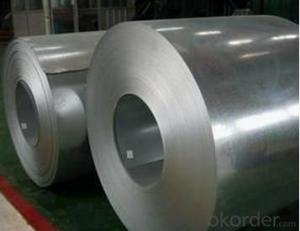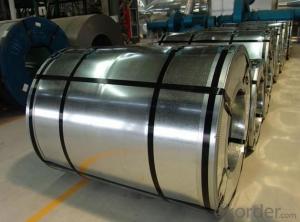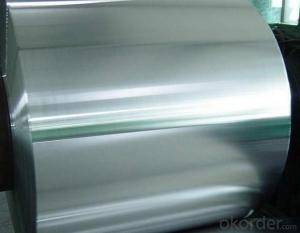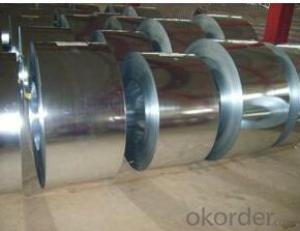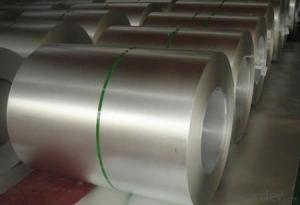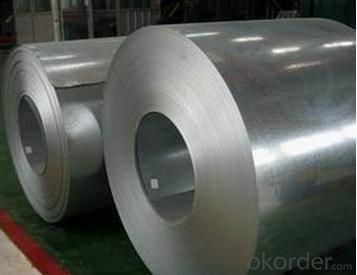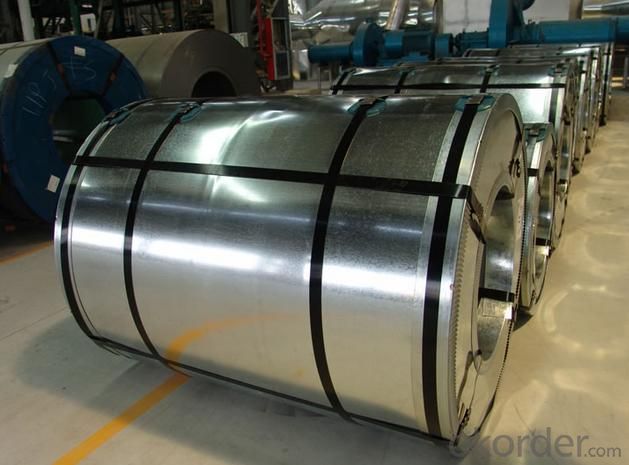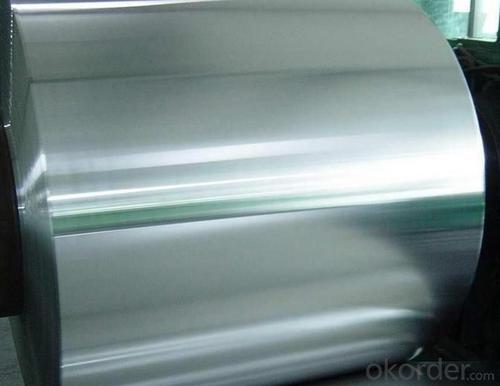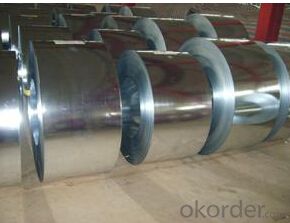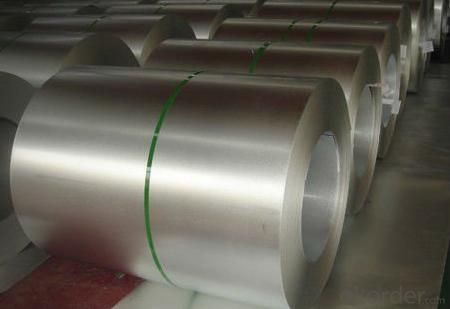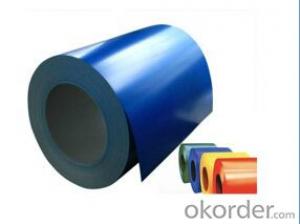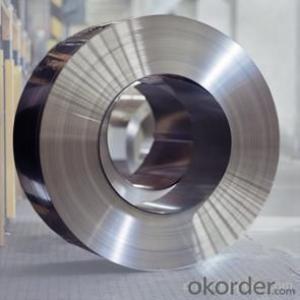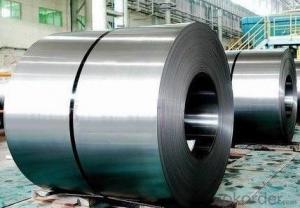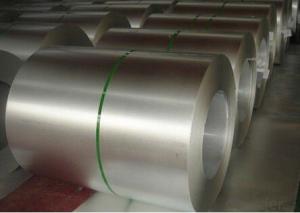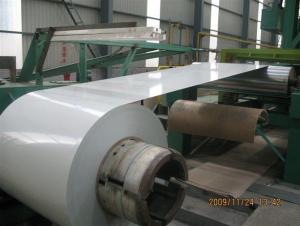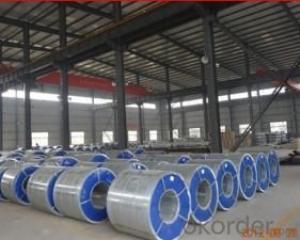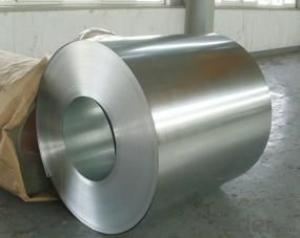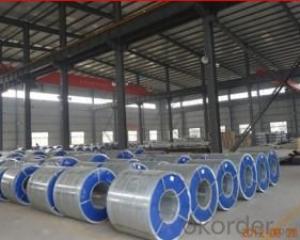Hot-Dipped Galvanized Steel Coil for Construction
- Loading Port:
- Shanghai
- Payment Terms:
- TT OR LC
- Min Order Qty:
- 25 m.t.
- Supply Capability:
- 10000 m.t./month
OKorder Service Pledge
OKorder Financial Service
You Might Also Like
Basic Info.
Model NO.:GT00818
Surface Treatment:Galvanized
Additional Info.
Trademark:GT
Packing:At buyer′s requirement
Standard:GB,JIS,ASTM
Origin:CHINA
HS Code:72123000
Production Capacity:50,000 mt/year
Product Description
Commodity: Hot dipped galvanized steel coil
Size: Thickness: 0.20mm to 1.2mm; Width: 500mm to 820mm
Surface finish: Regular spangle; Small spangle
Surface treatment: Chromated passivation
Zinc coating: Z08, Z12, Z18
Packing: Mill's standard packing for exporting
Usage: used in the industries such as construction ,cold rolling forming and electro mechanics manufacturing, household electric appliance manufacturing and etc
Standard adopted: GB/T2518-1998;Also we supply such steel strips according to JIS,ASTM standard to meet users'requirements.
Steel grade: Q195,Q195L,SPCC(Other material require agreement )
Equivalent standard: JIS G3302 1998 or ASTM A653M/A924M 1998
Price Terms: FOB, CIF Term
Payment Terms: T/T, L/C at sight
Delivery: 15 days after receiving your valid L/C/down payment
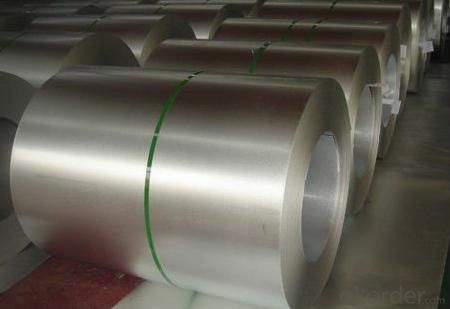
Acceptable payment term and way?
T/T,L/C, T/T + L/C, D/P
Acceptable price term
FOB CNF CIF DDU CPT
Do you accept OA payment terms?
Yes, sure, but it normally depending on the order value
Do you have QC team?
Yeah, sure, our QC team is very important, they will keep the qualitycontrol for our products.
What is the validity of your quotation?
Normally 7 days.
What is your advantage?
24 hour quick response /Customer oriented/ Credit foremost/ Top quality Excellent
What is your acceptable payment term?
TT,LC,OA etc
- Q: 7850kg/cu.m density is typical for all type of steel? like reibar, I- beam and so on
- 90% of the steels used today are plain mild carbon steels consisting of iron with less than 1% carbon content and as such have a density of about 7750 kg/cubic meter. Some special steels which have a significant percentage of alloying elements such as chrome or manganese or other elements will have greater density bringing the steel up to about 8000 kg / cubic meter. There are a greater many factors influencing the exact density of a steel. Even for steels of exactly the same content of iron , carbon and other alloying elements, there may be a difference ( very small mind you ) in density due to work hardening. The difference in this case is due to movement of dislocations which become locked in the grain boundaries and this forms a more dense crystal structure. For this same reason, the theoretical density of steel (which does not take into account dislocations) is greater than the measured density of steel.
- Q: How is the thickness of a steel coil measured?
- The thickness of a steel coil is typically measured using a device called a thickness gauge or micrometer. This tool consists of a calibrated mechanical or digital system that measures the distance between two opposing surfaces of the steel coil. By placing the gauge on the coil and applying pressure, the thickness can be accurately determined.
- Q: Can steel coils be stored vertically?
- Yes, steel coils can be stored vertically.
- Q: What are the challenges in coil slitting for thin gauge materials?
- Some of the challenges in coil slitting for thin gauge materials include maintaining precise tolerances, avoiding material deformation or buckling during the slitting process, and ensuring consistent edge quality. Additionally, handling and feeding thin gauge materials can be more delicate, as they are more prone to damage or distortion. Proper tension control and alignment are crucial to prevent issues like edge wave or camber, which can affect the overall quality of the slit coils.
- Q: What is the difference between steel coils and steel sheets?
- Steel coils and steel sheets, although both forms of steel, exhibit distinct differences. Steel coils, which are long rolls of steel wound into a coil shape, are typically produced at a steel mill and serve as raw materials for further processing or manufacturing. Various industries, including automotive, construction, and appliance manufacturing, commonly utilize steel coils in the production of items such as pipes, tubes, and automotive parts. Conversely, steel sheets are flat pieces of steel that are typically derived from steel coils. These sheets come in different sizes and thicknesses, making them versatile for various applications. Construction projects, such as roofing, siding, and structural components, often employ steel sheets. Additionally, they are utilized in manufacturing processes like stamping, forming, and fabricating diverse products. One primary distinction between steel coils and steel sheets lies in their shape and form. Steel coils adopt a cylindrical, rolled form, whereas steel sheets possess a flat, rectangular structure. This dissimilarity in shape renders steel coils more suitable for continuous production processes, while steel sheets find application in scenarios that demand flat surfaces. Another variation pertains to the handling and transportation of these steel forms. Due to their large size and weight, steel coils necessitate specialized equipment like coil cars or cranes for transport and storage. Conversely, steel sheets can be conveniently stacked, transported, and stored using conventional methods. Lastly, the processing requirements for steel coils and steel sheets differ. Steel coils often undergo additional processing steps, such as slitting, cutting, or coating, to meet specific customer requirements. Conversely, steel sheets may require minimal processing before being utilized in their intended applications. In summary, steel coils and steel sheets exhibit variances in shape, handling, transportation, and processing requirements. Steel coils, in their rolled, cylindrical form, are utilized for further processing, while steel sheets, cut from coils, serve specific applications. Recognizing these distinctions is crucial when selecting the appropriate steel form for a particular project or manufacturing process.
- Q: I am a complete idiot when it comes to anything musical, so please forgive me if this is a stupid question. I bought my son his first guitar, acoustic and didnt realize until after I purchased it that it has steel strings. Can I have the strings changed from steel to nylon???
- You can easily switch from steel to nylon strings or vice versa. You can buy the strings and string the guitar yourself or I'm sure you can get it done in any normal guitar shops. I've gone from nylon to steel and it hasn't affected my guitar at all. :D
- Q: What are the different methods of steel coil surface cleaning?
- There are several methods of steel coil surface cleaning, including mechanical cleaning, chemical cleaning, and high-pressure water cleaning. Mechanical cleaning involves using abrasive materials or brushes to physically remove dirt, rust, and other contaminants from the surface. Chemical cleaning uses various chemicals or solvents to dissolve or loosen the contaminants, making them easier to remove. High-pressure water cleaning involves spraying water at a high pressure to dislodge and wash away the dirt and debris. These methods can be used individually or in combination, depending on the level of cleanliness required and the specific condition of the steel coil.
- Q: I'm getting my nose pierced, meaning that i have to keep the piercing in for a prolonged time. i've always had reactions when wearing sterling silver or fake earrings (i dont know what types of metal they were) after wearing it overnight. Will I get a reaction on my nose piercing if the stud is surgical steel?
- Surgical Piercing
- Q: What are the challenges in coil edge trimming for narrow strips?
- There are several challenges in coil edge trimming for narrow strips. Firstly, one of the main challenges is maintaining accuracy and precision during the trimming process. Narrow strips require a high level of precision to ensure that the edges are trimmed evenly and smoothly. Any deviation from this precision can result in uneven edges or burrs, which can affect the overall quality of the strip. Secondly, there is the challenge of controlling the strip tension. Narrow strips are more prone to tension issues, as they have less surface area to distribute the tension evenly. This can lead to problems such as strip breakage or stretching, which can impact the final product's quality. Another challenge is avoiding material waste. Narrow strips often have a smaller margin for error, meaning that any mistakes in the trimming process can result in a significant amount of wasted material. Minimizing material waste is crucial for cost-effectiveness and sustainable manufacturing practices. Additionally, maintaining a high production rate can be challenging when working with narrow strips. The trimming equipment needs to be able to handle the high speed required for efficient production while still maintaining accuracy and precision. This requires the use of advanced machinery and technology to ensure smooth and efficient operations. Lastly, the handling and transportation of narrow strips can also pose challenges. Due to their small size, narrow strips are more susceptible to damage during handling and transportation. Proper care and handling techniques need to be implemented to prevent any potential damage, which could affect the quality of the final product. Overall, the challenges in coil edge trimming for narrow strips revolve around precision, tension control, material waste, production rate, and handling. Overcoming these challenges requires the use of advanced technology, skilled operators, and careful attention to detail throughout the entire process.
- Q: I need new sprockets on my GSX-R1, I've heard that alumnium sprockets wear out twice as fast as steel and the difference is not noticable
- i also have a gsx-r1000 06.. always change the sprockets and chain at the same time if you don't it will just wear out the chain faster. all you really need is to go down 1 on the front sprocket and 2 up on the back. stick with the steel sprockets they will save you money in the long run. if you like to wheelie all the time stay away from the aluminum it will wear out quicker.. they also make sprockets that are aluminum on the inside and steel on the outside.
Send your message to us
Hot-Dipped Galvanized Steel Coil for Construction
- Loading Port:
- Shanghai
- Payment Terms:
- TT OR LC
- Min Order Qty:
- 25 m.t.
- Supply Capability:
- 10000 m.t./month
OKorder Service Pledge
OKorder Financial Service
Similar products
Hot products
Hot Searches
Related keywords
